Basic counting skills Normal Math Worksheets for Ages 4-7
5 filtered results
-
From - To
Enhance your child's foundational math abilities with our "Basic Counting Skills Normal Math Worksheets for Ages 4-7". Designed to make learning fun and engaging, these worksheets help young learners master essential counting skills through a variety of exercises. Perfect for preschool and early elementary-aged children, each worksheet focuses on numbers, counting objects, and identifying quantities. With vibrant illustrations and clear instructions, kids will enjoy practicing basic math concepts at their own pace. Support your child's numeracy journey and build a strong math foundation with our expert-crafted, printable resources. Browse and download today!
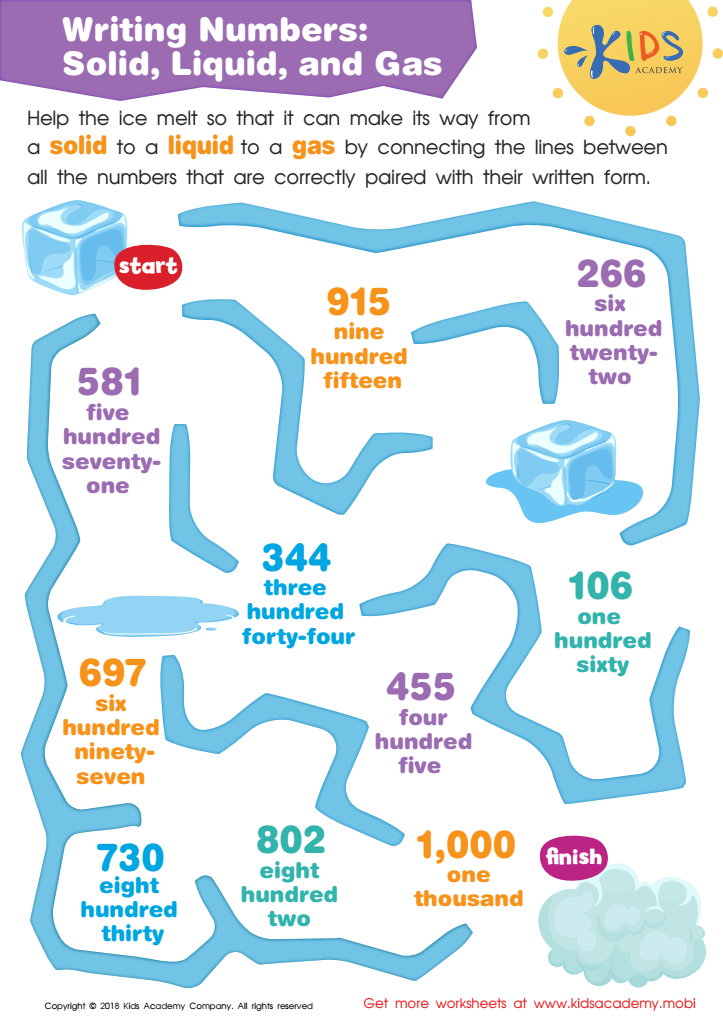

Solid, Liquid, and Gas Writing Numbers Worksheet
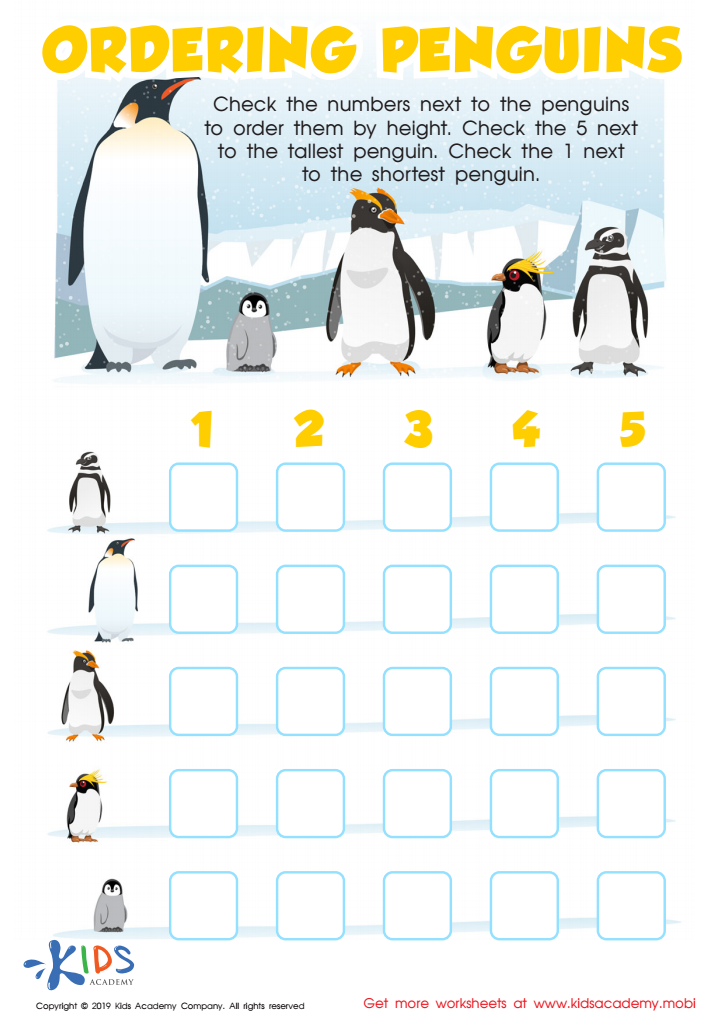

Ordering Penguins Worksheet
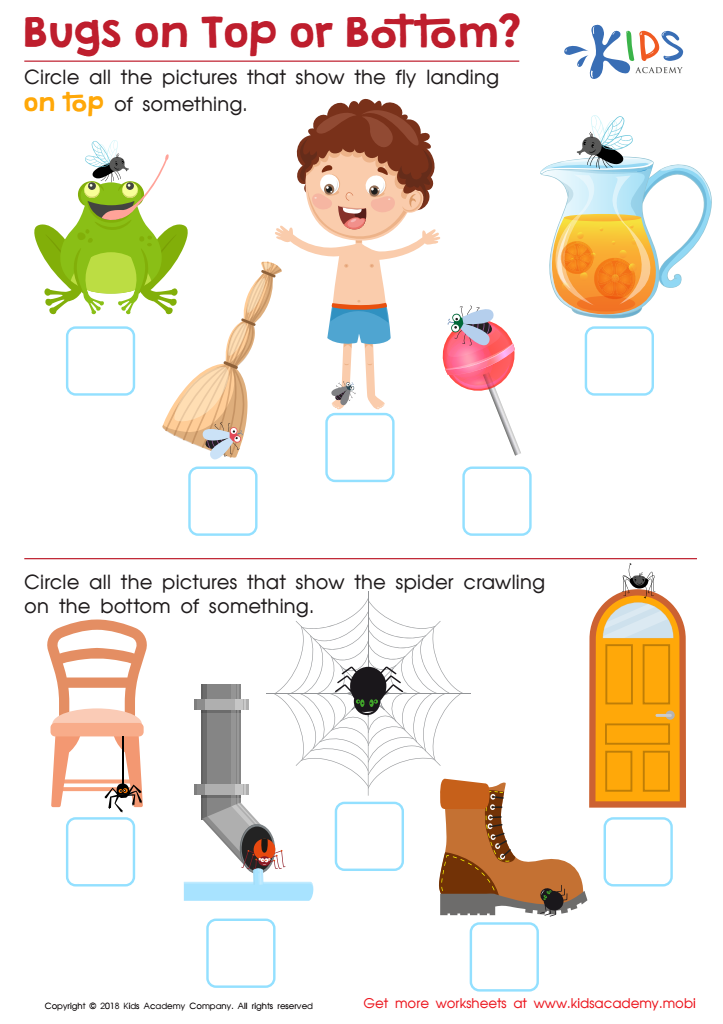

Bugs on Top or Bottom? Worksheet
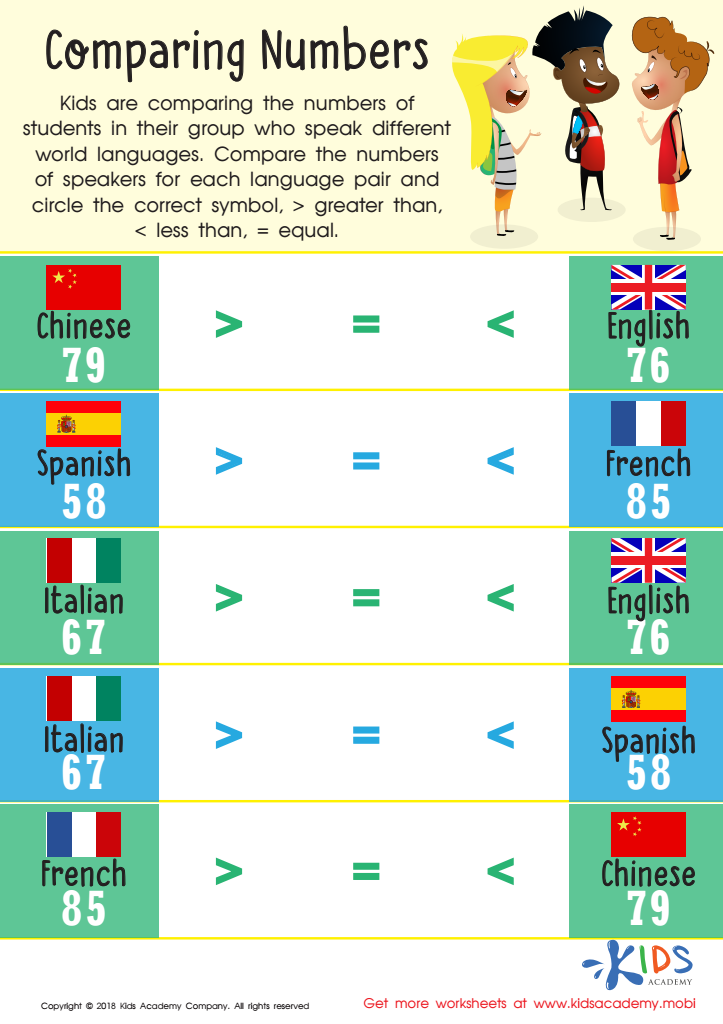

Comparing Numbers Worksheet for 1st Grade
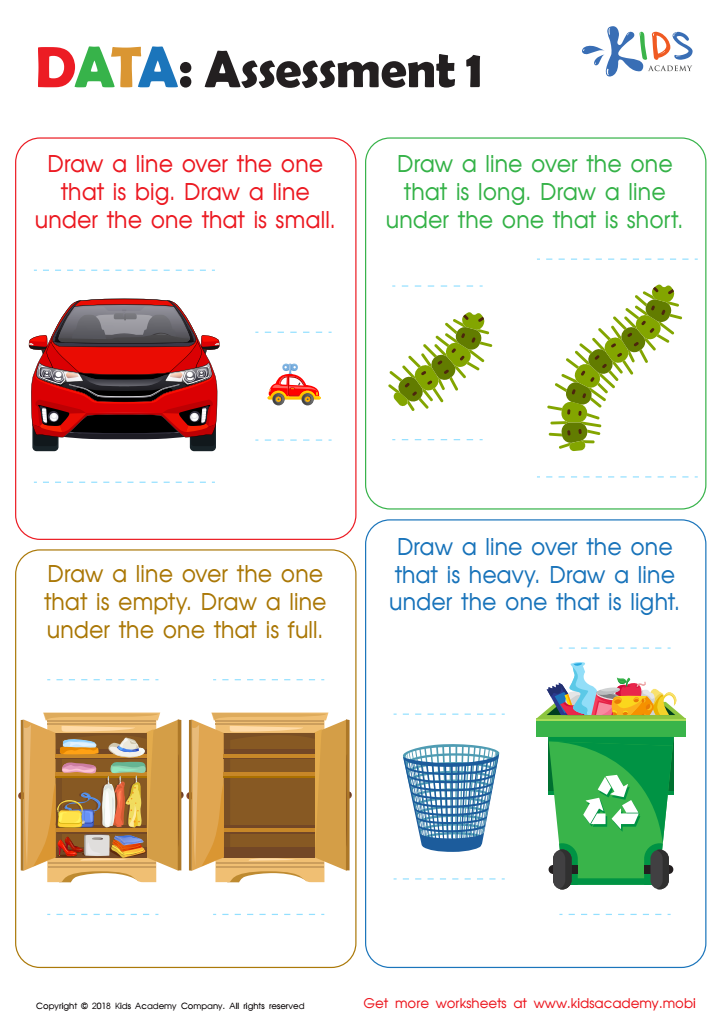

Data: Assessment 1 Worksheet
Parents and teachers should care about basic counting skills for children ages 4-7 because these foundational skills are critical for developing essential mathematical competencies. At this tender age, children are like sponges, absorbing new information with great ease. Introducing basic counting acts as the building block for more complex concepts like addition, subtraction, and eventually multiplication and division. Counting helps young learners understand number relationships, patterns, and sequences, fostering numerical literacy that is invaluable in everyday life.
Furthermore, mastering counting can significantly boost a child's confidence and enthusiasm for learning, creating positive experiences with math early on. This can reduce anxiety or fear associated with the subject in later years. Counting is also integral to developing problem-solving skills and logical thinking, both of which are broadly applicable to other academic areas and real-world situations.
Socially, basic counting can improve a child’s ability to participate in classroom activities and games, enhancing cooperative and competitive interactions. Moreover, early familiarity with numbers and math concepts significantly aligns with improved academic performance in future grade levels. Therefore, investing time in developing these skills sets the stage for lifelong learning and curiosity in mathematics, ultimately aiding in a child's holistic development.
 Assign to My Students
Assign to My Students




















